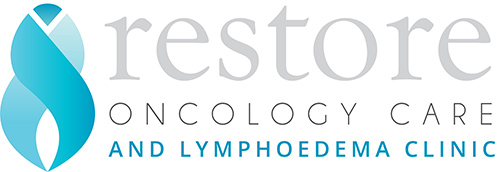Radiation or radiotherapy to the breast and possibly the armpit or above the collar bone area, may be recommended as part of the treatment for breast cancer. It usually comes following surgery and chemo and is a means of “mopping up” or killing any remaining cancer cells, that weren’t removed by surgery or killed off with chemotherapy.
Radiotherapy will consist of 2-5 weeks of daily radiation to the area that has been mapped out by a radiation oncologist. With breast conserving surgery (lumpectomy), radiation will be to the breast tissue and with mastectomy, to the chest wall. The radiotherapy treatment will take 5-15 mins and is continued daily, except on weekends, for the 2-5 weeks, depending on the dose required.
Radiotherapy has an accumulative effect. Early on in the treatment, there may be very little visible difference, however, as the treatment continues, the skin may become pink, then red and may become burnt with peeling as the treatment comes to an end and in the 7-10 after treatment. Once the radiation has finished, it actually continues to build in response for 7-10 days, so the peak of it’s effect will be felt at this time, after radiation has finished.
Side effects of radiotherapy include:
- Changes in the skin colour. Your skin may become darker during treatment.
- Changes in skin thickness. Your skin may become tougher or thicker after treatment.
- Fatigue (tiredness) – it is normal to feel tired during the weeks in which you are having radiotherapy.
- Tenderness in the breast and/or chest.
- Swelling of the breast.
- Tightness of the skin and shoulder
- Loss of appetite.
Skin care:
- Moisturise your breast, armpit, neck daily prior to radiation
- Moisturise the tissue 4-5 x day during radiation using a good cream such as Moo Goo, QV, Dermavene
- Your radiation oncologist or nurse may also recommend a more specific cream such as StrataXRT to treat radiation dermatitis
- Drink plenty of fluid
- Keep gently moving: it is important to keep this tissue softly mobilising with gentle range of motion and stretches: take a look here for more on what stretches to do:
Fatigue:
- radiotherapy may cause fatigue that can last 2-6 months following treatment.
- To help manage this fatigue:
- Pace yourself: don’t be afraid to have a rest in the afternoon and put your feet up
- Exercise: even though you feel tired, exercise will help to combat this tiredness. Try to keep moving every day, aiming for 30 minutes of walking, riding a bike, yoga, pilates or anything that you enjoy. Something is better than nothing. However, remember if you are cleaning the house, shopping, looking after kids, working etc, you need to find a balance and don’t do it all at once.
- Drink plenty of fluid
After Radiation:
It is not uncommon to finish radiotherapy and, in an attempt, to resume life as it was, to almost forget about having treatment in a sense that “it’s all over”, move on or back to life, with work, home, family etc.
It is super important to manage this area after treatment. The radiation continues to have an effect on the tissue and the skin continues to heal and remodel for years after treatment. Hence, we need to make sure we encourage healing and remodelling of tissue as much as possible.
- Continue to moisturise the area daily
- Wear a non wired but supportive bra for some portion of the day, as tolerated
- If you have discomfort at night, try wearing either a soft bra or a snug fitting camisole
- Continue to stretch and maintain range of motion of the shoulder and neck
- Perhaps incorporate some gentle lymphatic drainage to help prevent swelling in the breast, take a look here for how to self massage:
- If you have breast swelling you may need a compression bra. Take a look at
www.leilaotoole.com
Mixed emotions:
At the end of radiation, you may be feeling mixed emotions. Usually, radiation is the final step in the treatment except for ongoing medications. You have been seeing your oncologist plus a number of different health professionals daily and this creates a sense of support and safety. Now its all done, you may feel elated that it is “all over” and yet there may be a sense despair, as now you have time to process what you have just been through for the last 6-12 months, as well as you are now on your own. Not seeing your oncologist or surgeon for 3 months and now what??? In addition to this it is common for friends and family to rejoice for you, that it is all over and done and you are now “cured”.
It is super common to not share these feelings of elation and in fact feel quite down. Yes, you have finished treatment but now you are left with the aftermath of treatment. In this phase try to:
- Be kind to yourself and accept that its ok to not feel on top of the world even though treatment has finished
- Reach out to counsellors/psychologist who can support you at this time, help you to understand and validate the mixed feelings and give you some strategies to help
- Call on friends or family to go for a walk, catch up for a coffee etc
- Keep moving: not only is exercise important for your physical recovery and you need to think about this phase as rehab: try to rebuild your physical self, but it is also crucial for mental health
- Download one of the many relaxation apps such as Headspace, Calm and start trying to find 10-30 mins a day to just stop. It will calm your central nervous system and help you manage the day to day stressors
- Set some small achievable goals to help you rebuild.



No Comments
Sorry, the comment form is closed at this time.